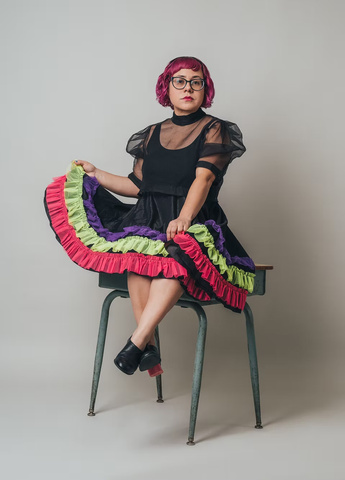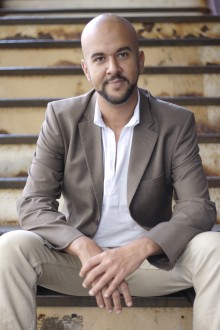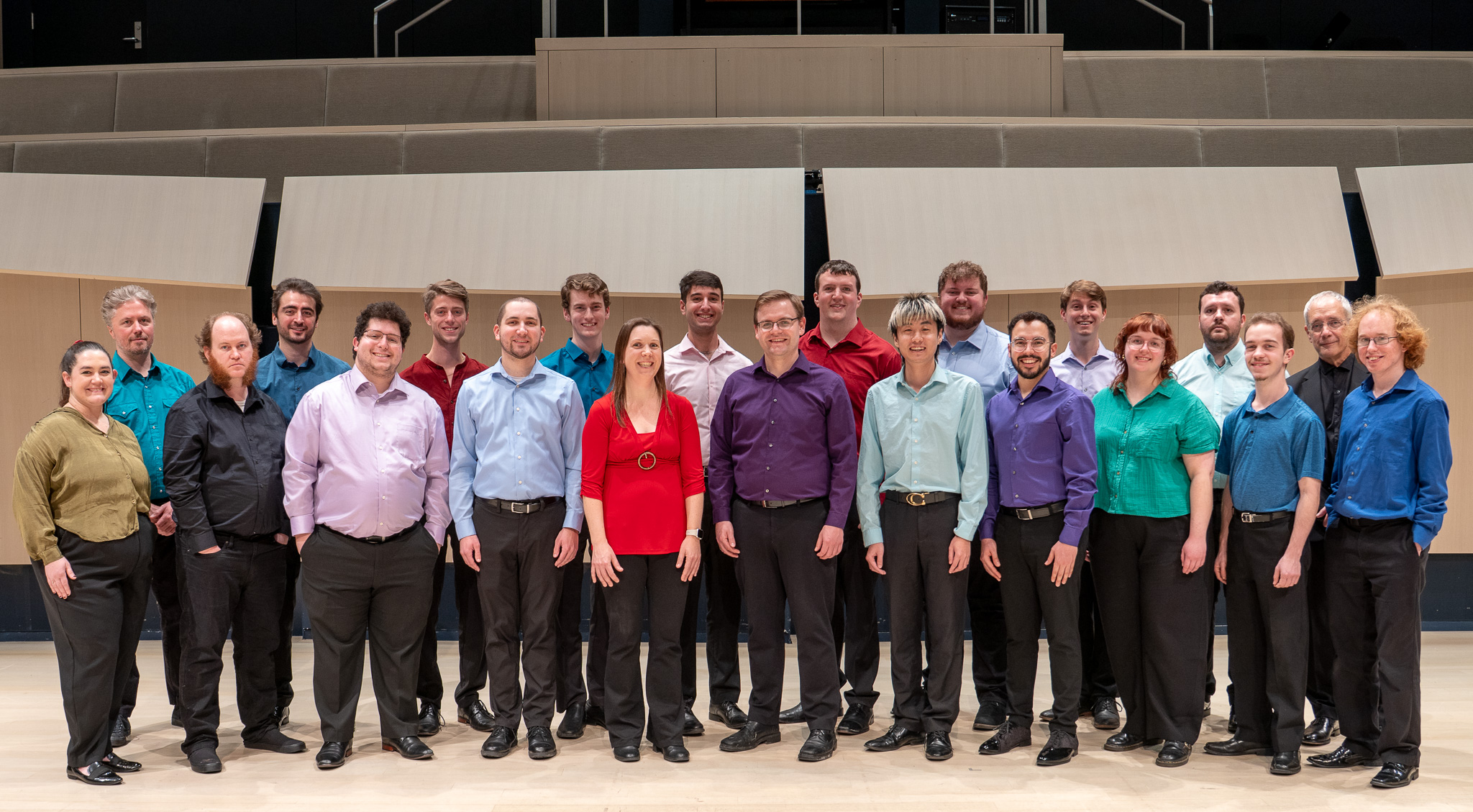CNM Ensemble Concert II
Sunday, December 7, 2025 at 7:30p in the Concert Hall
David Gompper, conductor
Program
Quimbombó (2010) | Angélica NEGRÓN(b. 1981) |
Caleb Estrada-Valentin, flute
|
Ominous (2024) | Vivian FUNG(b. 1975) |
| Chaosupei Gao, flute David Cyzak*, oboe Sayyod Mirzomurodov, clarinet Jordan Marbach, alto saxophone Jacob White, horn Miles Bohlman and Shaun Everson, percussion John T Morris, piano Erin Freund, harp Yestyn Griffith, violin I Rachel Walter, violin II Kylie Little, viola Christopher Mendez, violoncello |
Code-switching (2023) | Marcos BALTER(b. 1974) |
Caleb Estrada-Valentin, flute *=SOM faculty |
Program Notes

Quimbombó (2010) evokes distant personal memories through a festive and celebratory perspective presenting and deconstructing di!erent rhythms and melodic gestures from the Afro-Caribbean tradition of Puerto Rico. The title, Quimbombó, makes reference to the Puerto Rican stewed okra (a dish introduced to Puerto Rican cooking by African slaves) and also serves as an onomatopoeic reference to a distinctive rhythmic pattern persistently used in the composition. The work explores the percussive possibilities of the melodic instruments of the ensemble as well as the voices of the performers as an extension of their playing and as a direct reference to the vocal gestures of the dancers in the performance of bomba, which articulate the spiritual significance of this dance. The piece is dedicated and written for Cadillac Moon Ensemble. Angélica Negrón is a Puerto Rican-born composer and multi-instrumentalist. She writes music for voices, orchestras, ensembles and film as well as robots, toys, and plants. Angélica is known for playing with the unexpected intersection of classical and electronic music, unusual instruments, and found sounds. |

Ominous (2024) is a work that gives voice to emotions hovering over my mind of late, as the anticipated post-COVID return to a sense of normalcy continues to edlue so many of us, and further precipitated by seeing my mother suffer through debilitating health issues that have taken away her mobility and presence of mind, underscoring for me the fragility of our lives. JUNO Award-winning composer Vivian Fung has a unique talent for combining idiosyncratic textures and styles into large-scale works, reflecting her multicultural background. NPR calls her “one of today’s most eclectic composers,” and The Philadelphia Inquirer praises her “stunningly original compositional voice.” |

Code-Switching (2023) - Originally a linguistics term, code-switching broadly refers to the act of altering one's language, speech patterns, mannerisms, or even appearance to enhance compatibility with others. For many, it is a survival technique, particularly among marginalized individuals who find themselves in environments hostile towards their identities. This morphing often carries elements of subversiveness, with codes within codes. In her article Tricksters, Troubadours - and Bartleby, the late art critic Jean Fisher stated that “for the colonial subject dispossessed by force, resistance had, of necessity, to operate clandestinely at the micro-social level.” She cited the syncretism of santería as an example, originating from the necessity to camouflage its Yoruban roots through Roman Catholic equivalences to evade persecution. Over time, what was once a subterfuge can (and often does) become a legitimized code itself, a way to exist intersectionally, thus rejecting any notion of a lingua franca or prescribed language while embracing the freedom of their own patois. Praised by The Chicago Tribune as “minutely crafted” and “utterly lovely,” The New York Times as “whimsical” and “surreal,” and The Washington Post as “dark and deeply poetic,” the music of composer Marcos Balter (b.1974, Rio de Janeiro, Brazil) is at once emotionally visceral and intellectually complex, primarily rooted in experimental manipulations of timbre and hyper-dramatization of live performance. |
